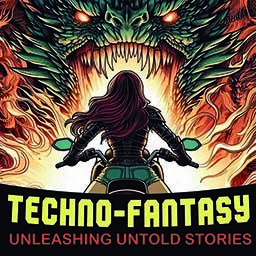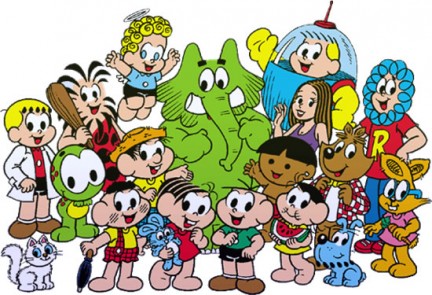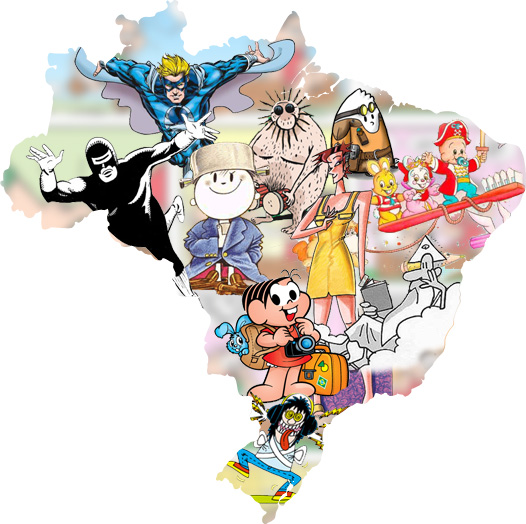
Brazilian comics have been making a notable impact in the global comic book market, particularly in the United States, where they offer unique narratives and artistic styles that captivate readers. This article delves into the emergence, evolution, and significance of Brazilian comics published in the USA, highlighting key creators, notable titles, and the cultural exchange facilitated by these works.
Emergence and Growth
The introduction of Brazilian comics into the US market gained momentum in recent decades, driven by efforts to diversify comic book offerings and introduce international perspectives to American readers. Initially focusing on graphic novels and serialized stories, these publications brought fresh narratives and artistic approaches distinct from mainstream American comics.
Notable Creators and Titles
Several Brazilian comic creators have made significant contributions to the US market, enriching it with their distinctive storytelling styles and cultural insights:
Rafael Grampá: Renowned for his dynamic art and unconventional narratives, Grampá explores gritty urban settings and complex characters, blending Brazilian influences with international comic aesthetics.
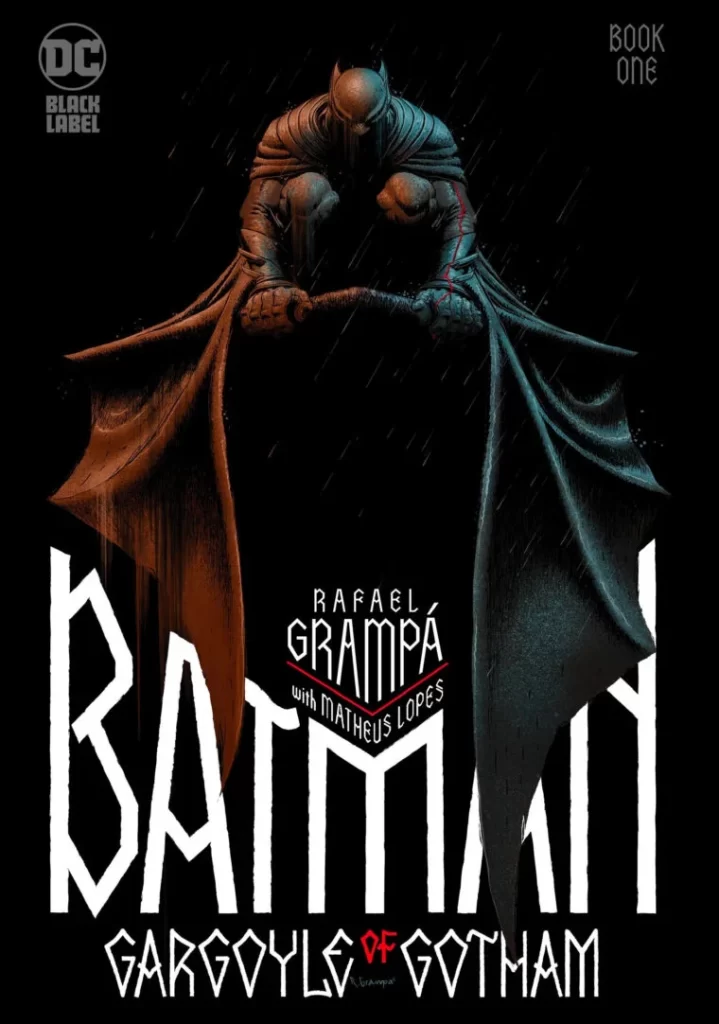
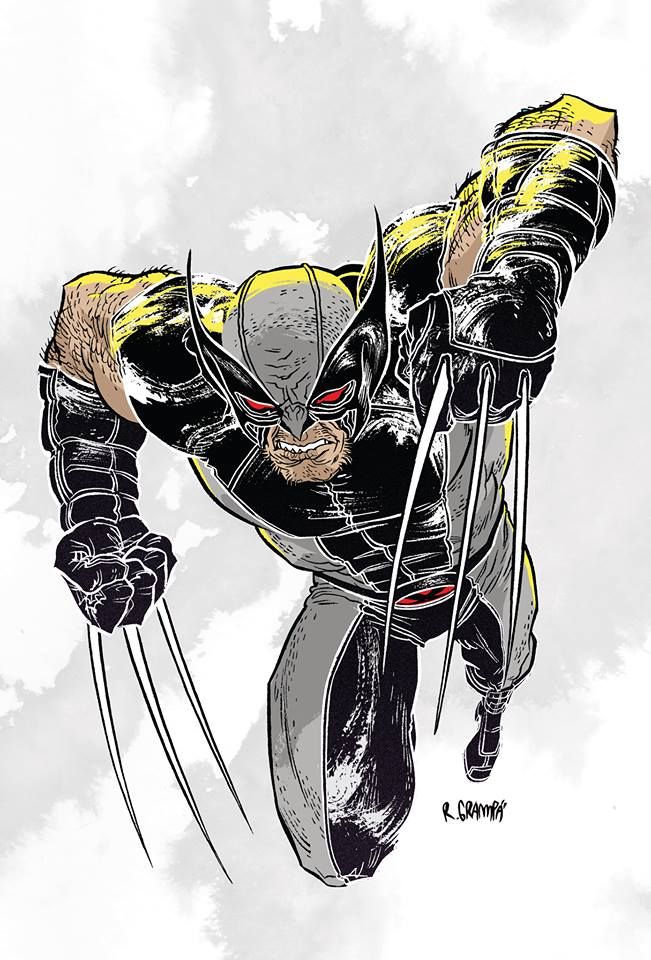
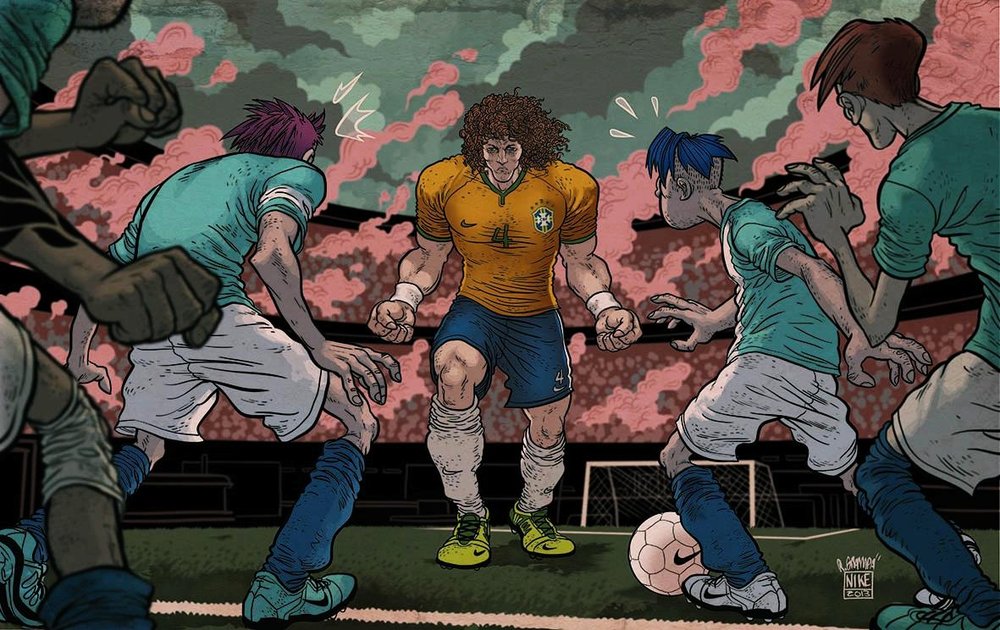
Fabio Moon and Gabriel Ba: The twin brothers gained acclaim for their collaborative work on “Daytripper,” a poignant exploration of life and mortality told through episodic storytelling and lyrical artwork.
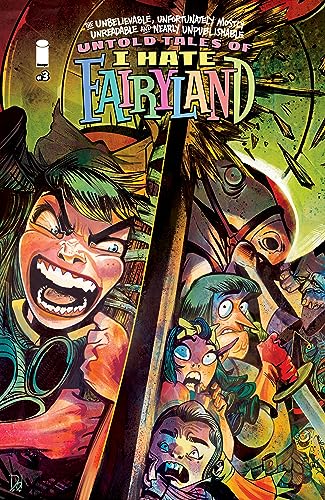
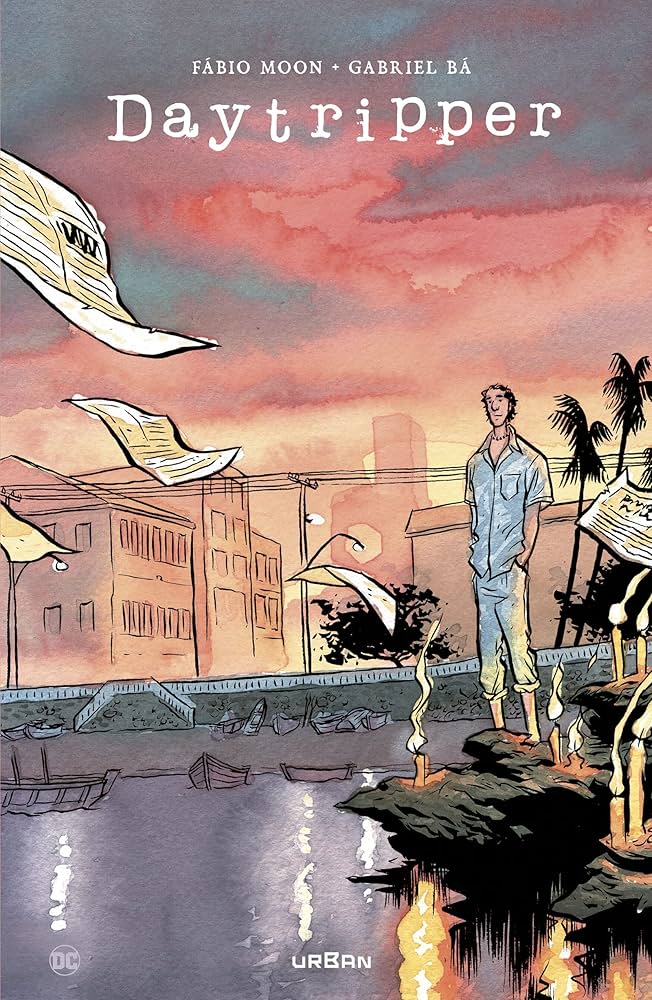
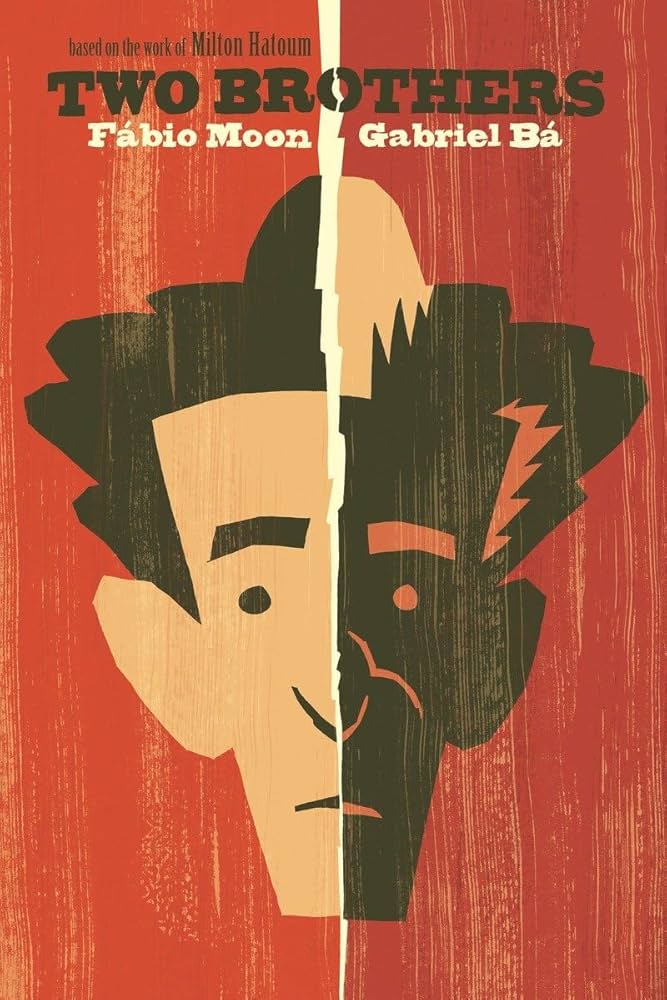
Marcelo D’Salete: His graphic novel “Run for It: Stories of Slaves Who Fought for Their Freedom” provides a profound examination of Brazil’s history of slavery, resonating with readers for its historical depth and powerful storytelling.
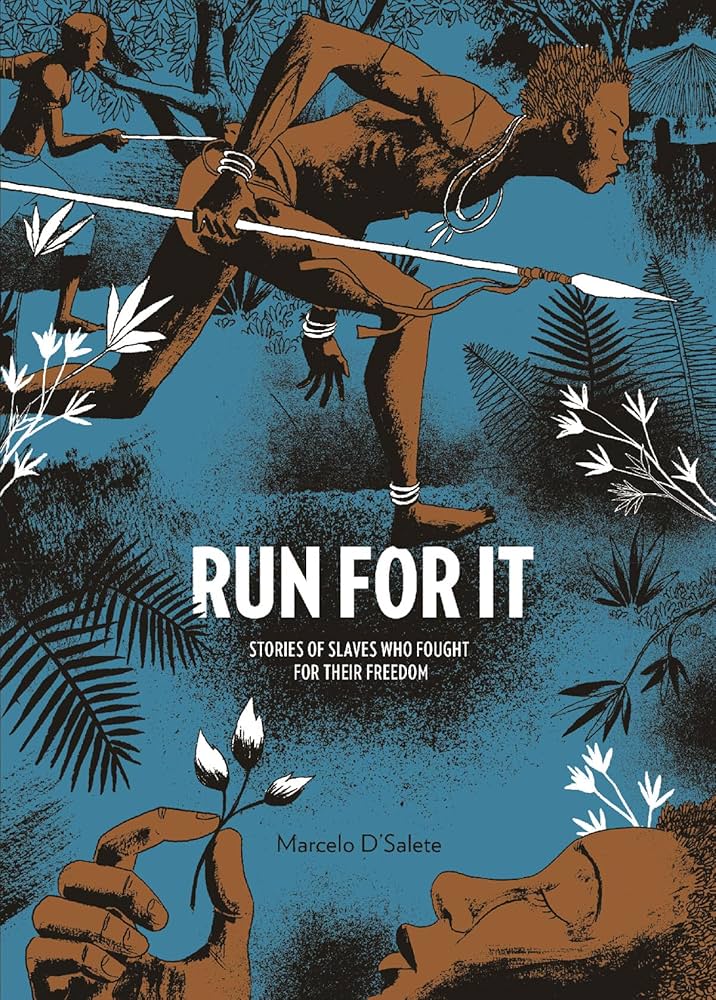
Maurício de Souza a separate case.
Monica and Friends – Cultural Iconography
Monica and Friends (Portuguese: Turma da Mônica), previously published as Monica’s Gang in Anglophone territories, and as Frizz and Friends in London, is a Brazilian comic book series and media franchise created by Mauricio de Sousa. The series originated in a newspaper comic strip, in which the protagonists were Blu (Bidu) and Franklin (Franjinha), launched by the newspaper Folha da Manhã in 1959. As the series continued, the central characters became Jimmy Five (Cebolinha) and Monica (Mônica), both of whom began to appear in the eponymous series in addition to the renamed Monica’s Gang (Turma da Mônica). The English title of the series was later changed to Monica and Friends. The characters and comics were subsequently adapted into, among other media, an animated television series; as well as films, most of which are anthologies. Initially introduced through localized editions and digital platforms, “Turma da Mônica” has captured the hearts of young readers with its humorous adventures and endearing characters. Nowadays, the comics are sold in 40 countries in 14 languages.

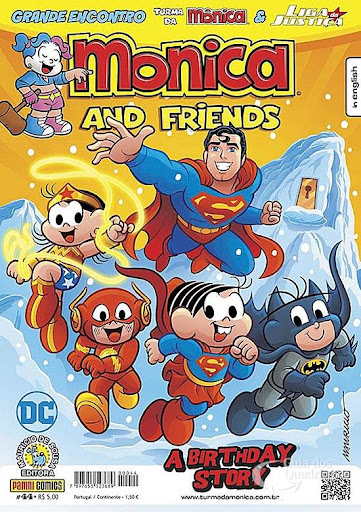
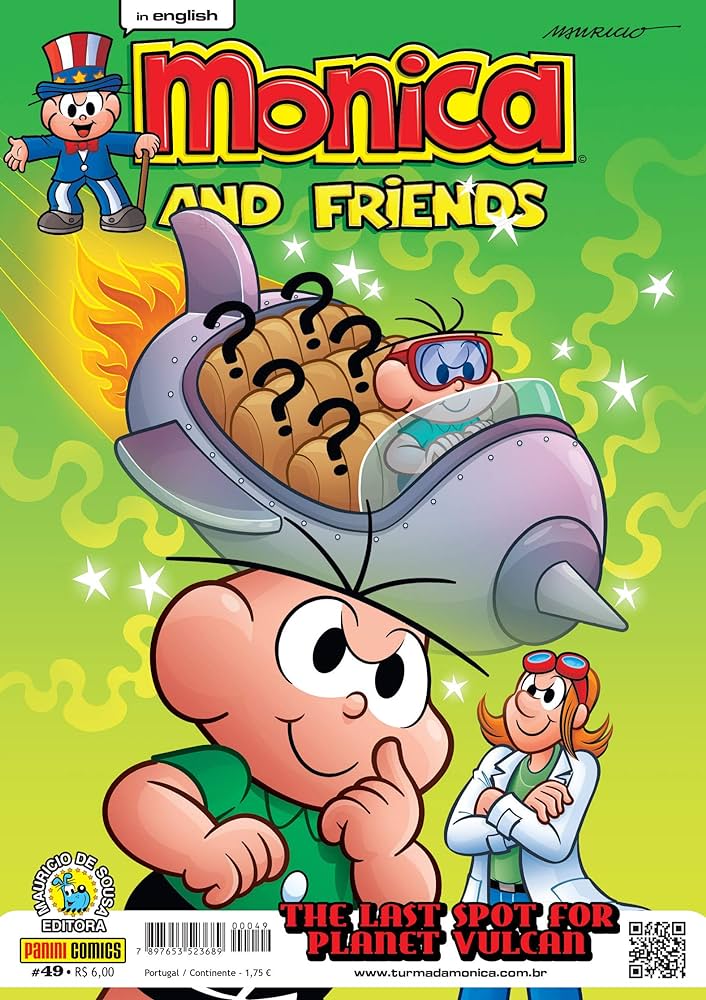
Brazilian Characters in Marvel and DC Comics
In addition to independent creators, Brazilian characters have also found representation in mainstream Marvel and DC Comics, enriching the diversity of superhero universes. The most famous characters of these two publishers are:
Roberto da Costa (Sunspot): A Brazilian mutant with the ability to absorb solar energy and convert it into superhuman strength, Sunspot has been a prominent member of the New Mutants, X-Men, and Avengers teams in Marvel Comics. His character reflects Brazilian heritage and cultural perspectives within the superhero genre.
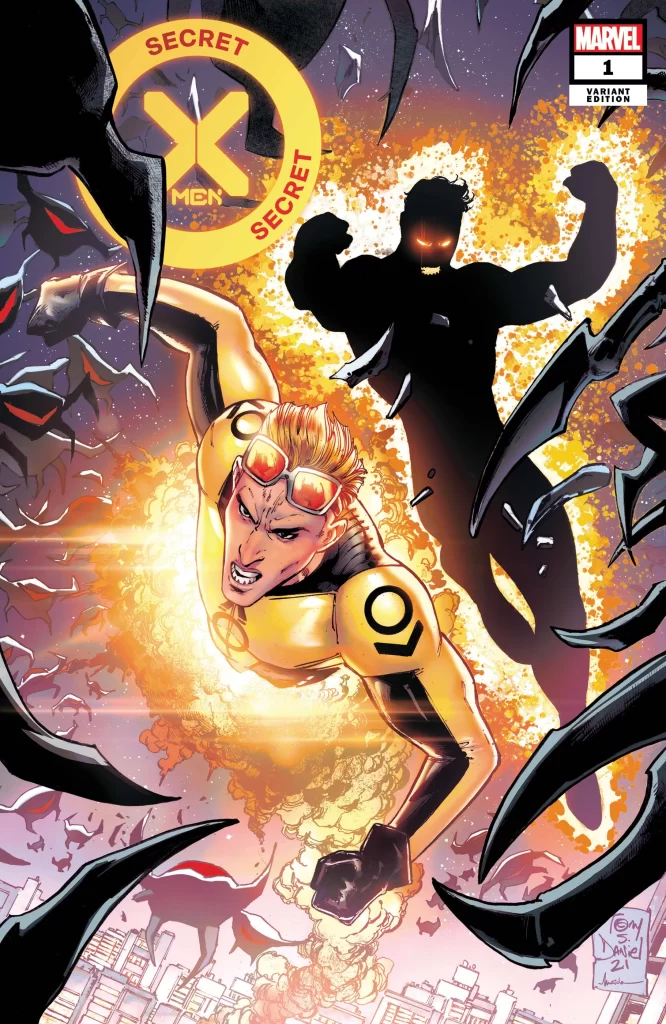
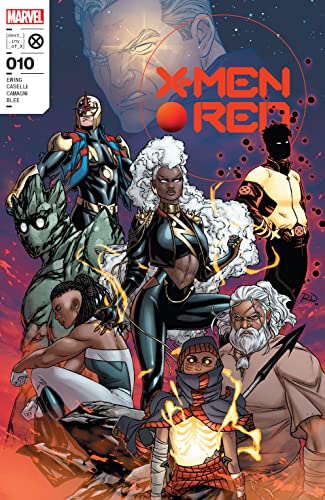
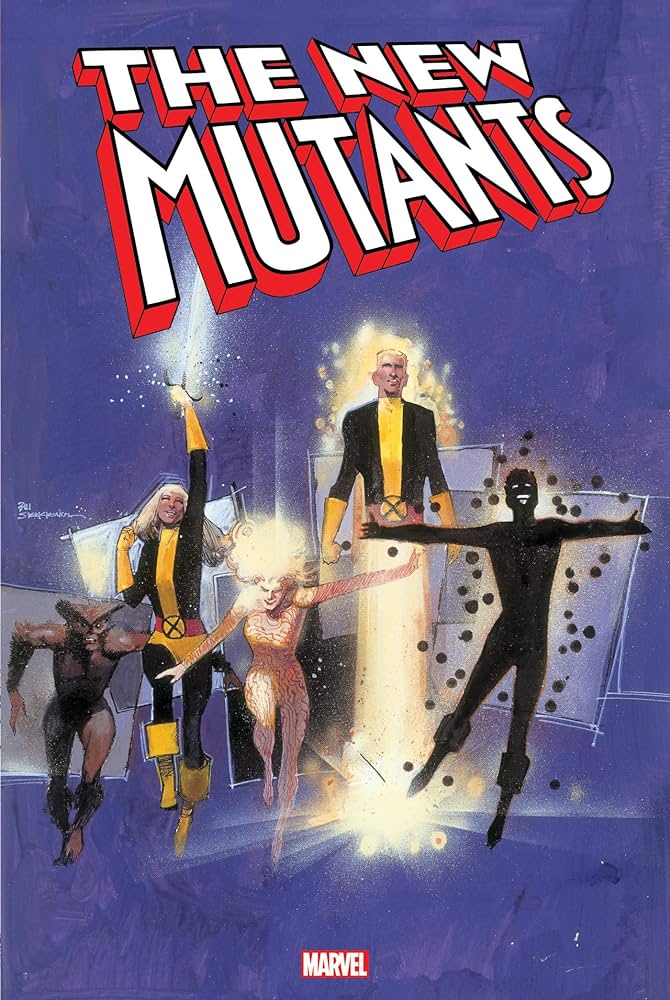
Beatriz da Costa (Fogo): As Fogo (Fire), Beatriz da Costa possesses pyrokinetic abilities linked to mystical sources, representing Brazilian cultural elements and perspectives within the DC Comics universe. She is known for her role as a guardian of the environment and has collaborated with international superhero teams like Justice League Europe.
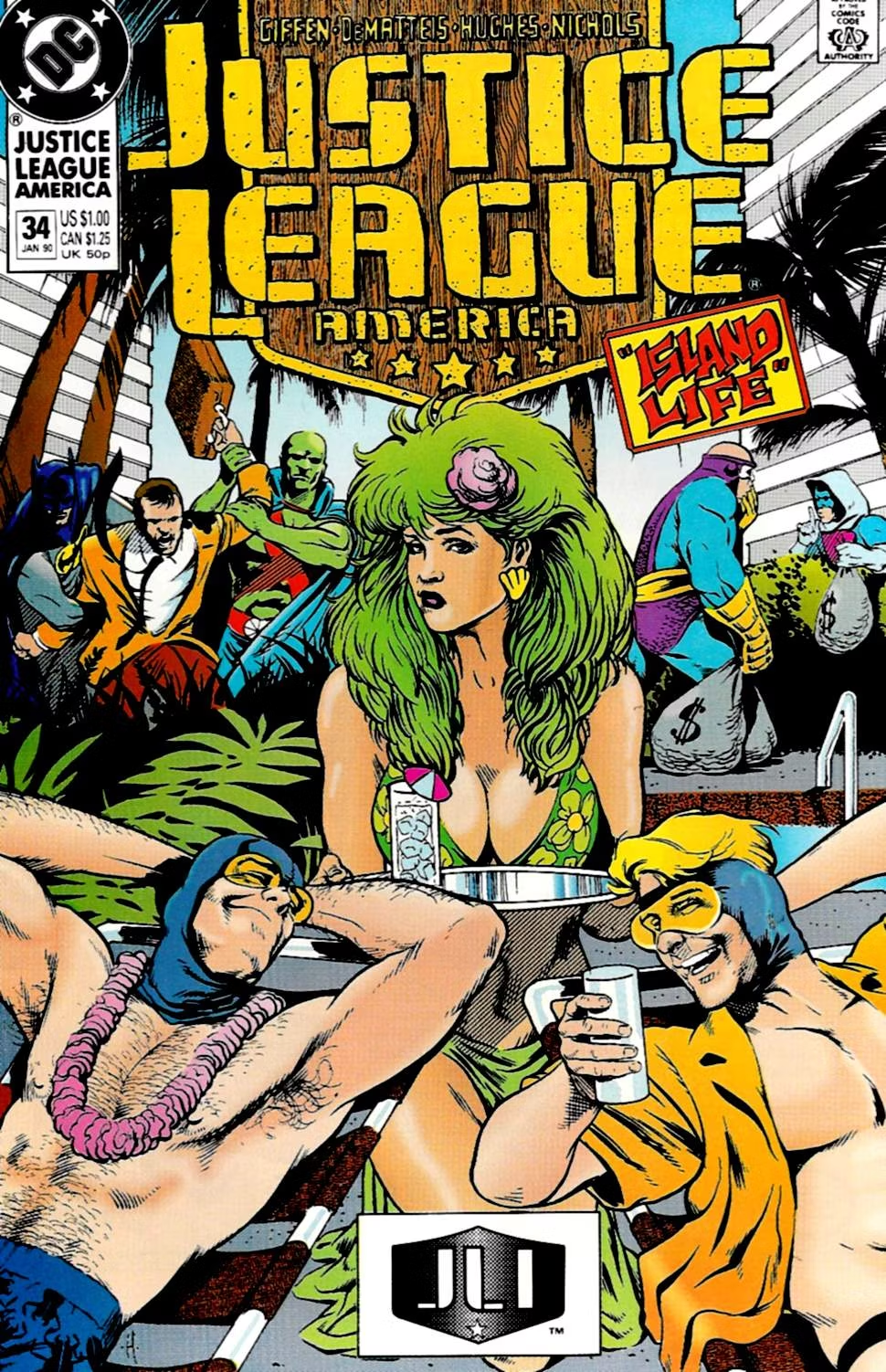
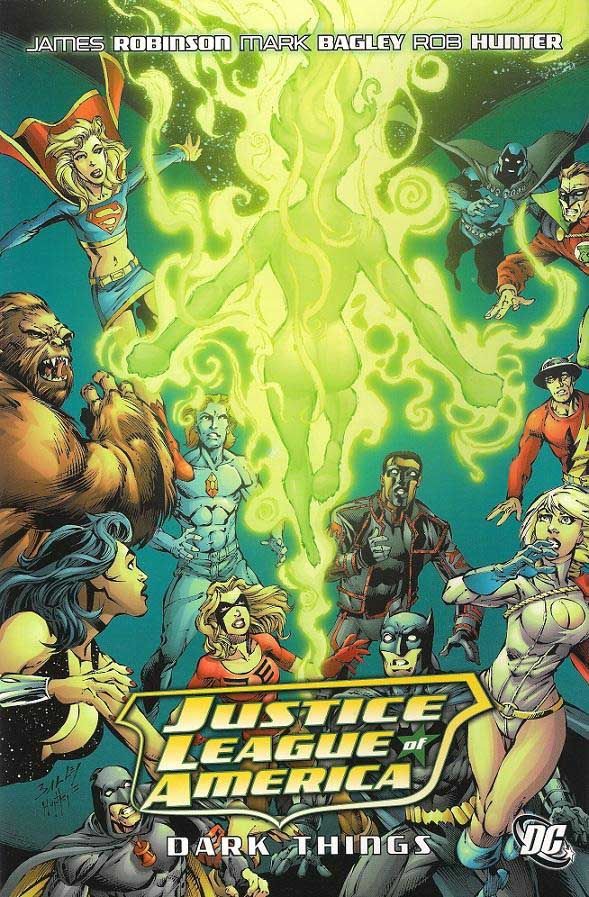
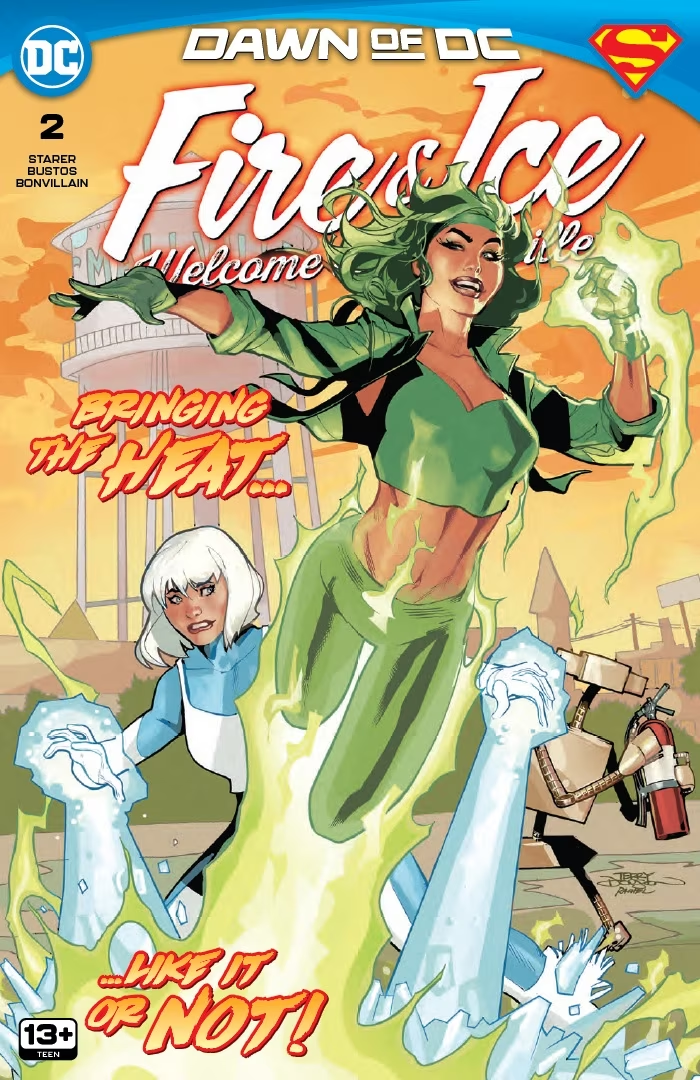
There are more Brazilian characters in comics like the examples listed below
Marvel there’s:
- Iara Dos Santos aka Shark-girl
- Amara Aquila aka Magma
- Maya aka Paragon
- Nina aka Nina the Conjuror
- Renata Da Lima aka Bouncer
- Javier Sandoval aka Javi Sandoval
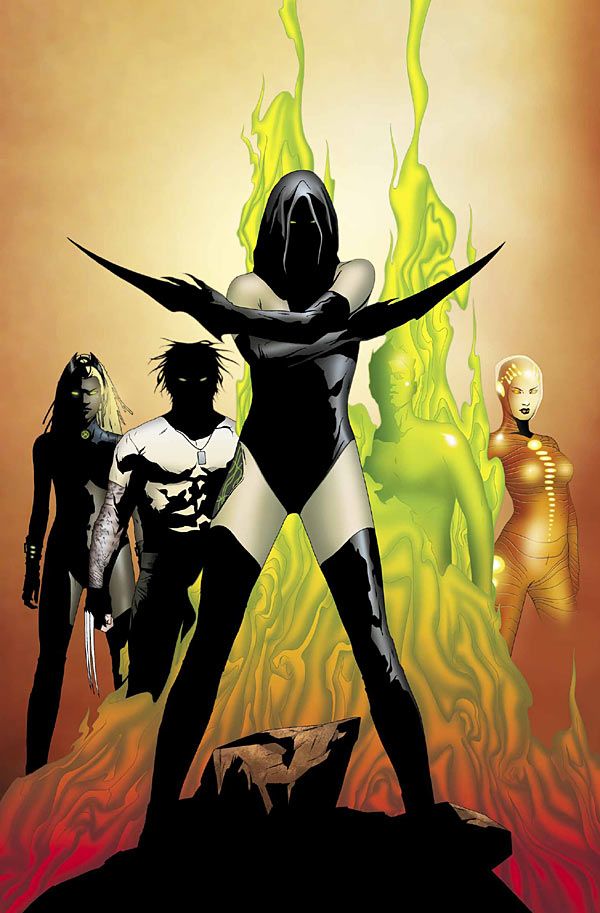
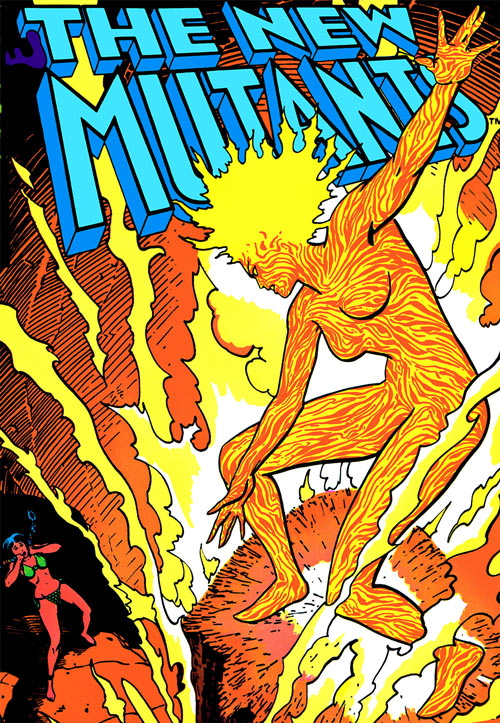
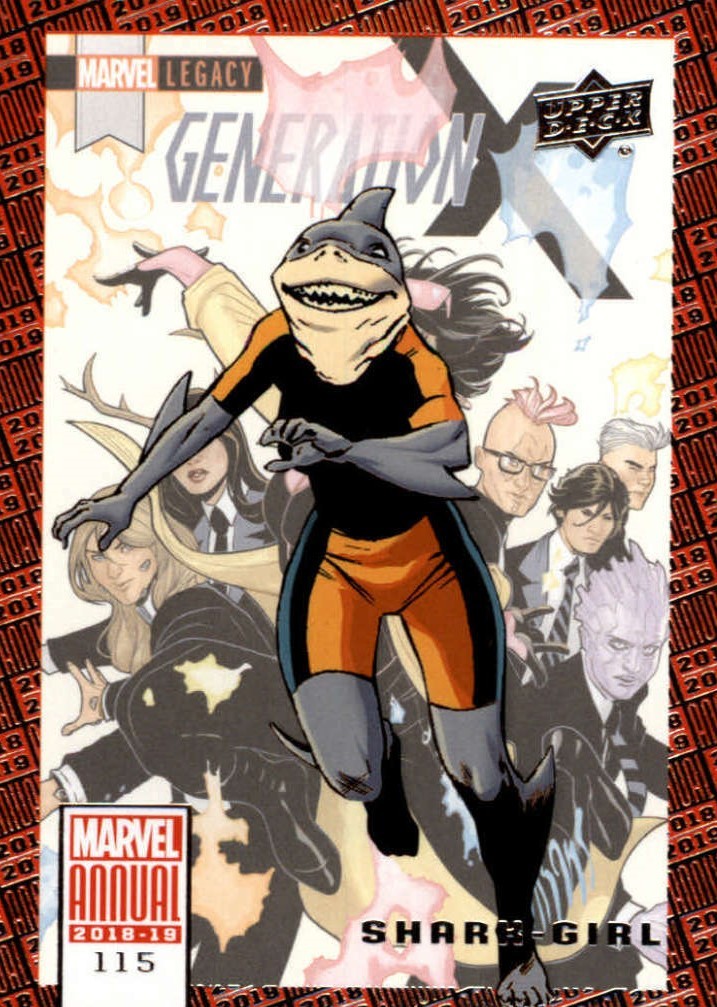
And in DC there’s:
- Yara Flor aka Wondergirl
- Miriam Delgato aka Mirage or Starfire
- Scandal Savage
- Sylvan Ortega aka Syl
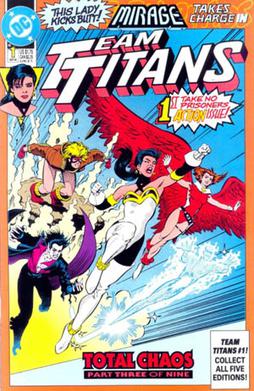
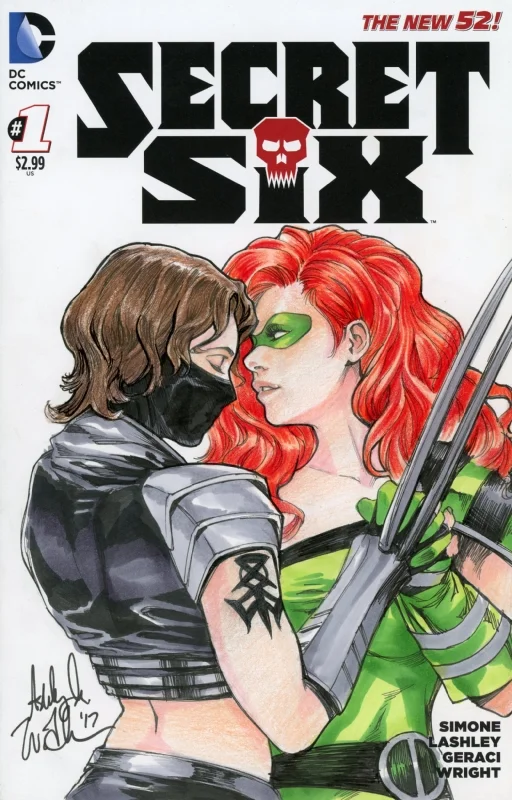
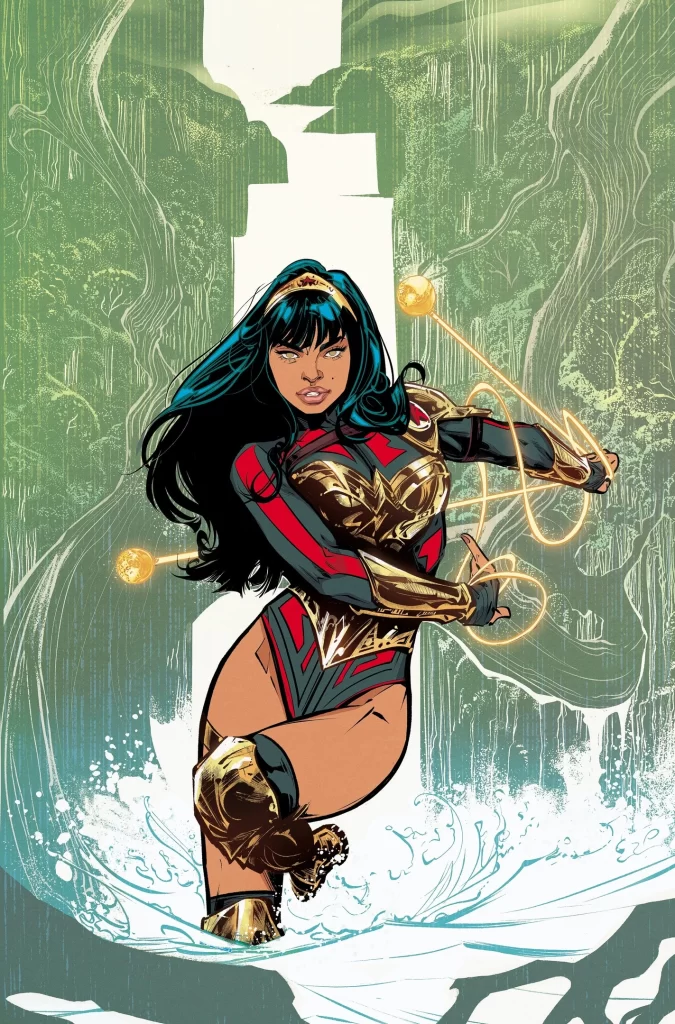
Cultural Exchange Through Storytelling
Brazilian comics published in the USA serve as cultural bridges, offering readers insights into Brazil’s rich storytelling traditions, social issues, and artistic innovations. These comics often tackle themes such as socio-political commentary, folklore, urban life, and personal identity, resonating with audiences seeking diverse narratives beyond conventional superhero tales.
Impact and Future Directions
The presence of Brazilian comics in the USA enriches the global comic book landscape by diversifying storytelling techniques, broadening cultural representation, and fostering international dialogue among creators and audiences. As awareness and demand for diverse narratives grow, Brazilian comics are poised to play an increasingly influential role in shaping the future of the medium.
In conclusion, Brazilian comics published in the USA exemplify the dynamic intersection of cultural exchange and artistic innovation within the global comic book industry. With each new publication, creators from Brazil contribute unique perspectives and narratives that enrich the collective tapestry of comics enjoyed by readers worldwide.
Soon we will have much more news for you about new and exciting Brazilian comics from our publisher! Wait.
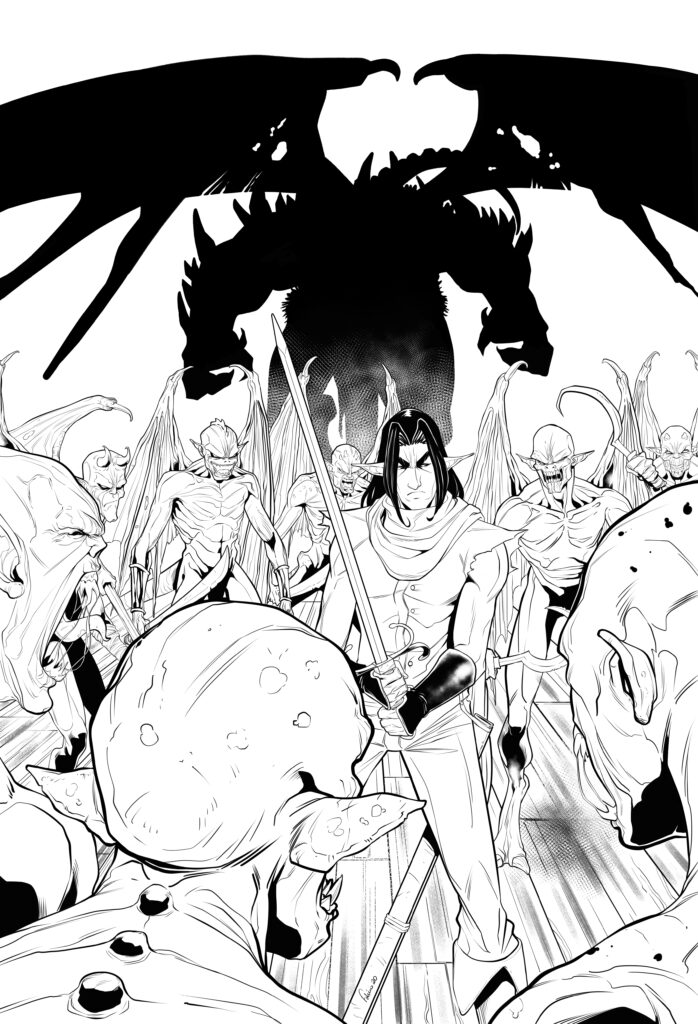
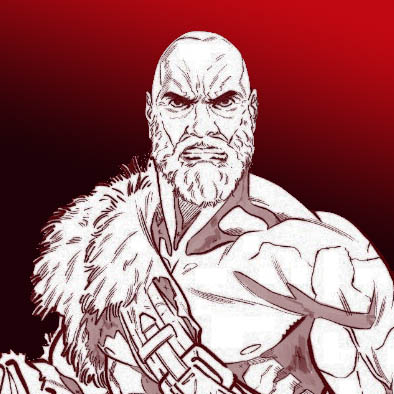
Article by Victor X
Victor Schmidt’s lifelong passions for literature and sports led him to discover his true love in superhero comics. Driven by an unyielding pursuit of the perfect story, Victor channels his energy into delivering insightful and valuable content to the comic book community while continuously refining his craft as a writer. In addition to his writing, he serves as an editor and creative reviewer, ensuring that every piece he touches is polished, impactful, and resonates with readers.
Affiliates disclaimer
Some of the links in this article may be affiliate links, which means we may receive a small commission, at no additional cost to you, if you decide to make a purchase through one of our recommended partners. We only recommend products we trust and believe will be beneficial to our readers. This help support our efforts in bringing you valuable content and making indie comics. Thank you for your support!
